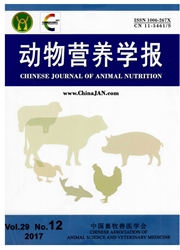

 中文摘要:
中文摘要:
肠黏膜是构成动物体内与外界环境之间最大的接触表面,是易受病原体定植和入侵的最常见部位。肠黏膜免疫屏障作为保护动物机体免受外来病原微生物侵扰的重要防线,可在抗原的刺激下利用免疫细胞和免疫相关物质产生特异性免疫应答,同时可对无害抗原下调免疫反应或产生免疫耐受。研究肠黏膜免疫屏障功能作用的机制并通过人为保护性措施来预防和修复肠黏膜免疫功能损伤对于动物机体免疫屏障功能的正常发挥和生产实践具有重要意义。
 英文摘要:
英文摘要:
Gut mucosa constitutes the largest contact surface between the host and the external environment, and it is the most common site of colonization and invasion of susceptible pathogen.As an important line of defense protecting host against the infestation of foreign pathogenic microorganisms, gut mucosal immune barrier can take advantage of immune cells and immune-related material to produce specific immune responses stimulated by antigens.And it can down-regulate the immune responses or produce immune tolerance to harmless antigens.Research on mechanism of gut mucosal immune barrier and protective measures to prevent and recover impaired immune function can have great significance for normal immune barrier function normally and production practice.
 同期刊论文项目
同期刊论文项目
 同项目期刊论文
同项目期刊论文
 期刊信息
期刊信息
